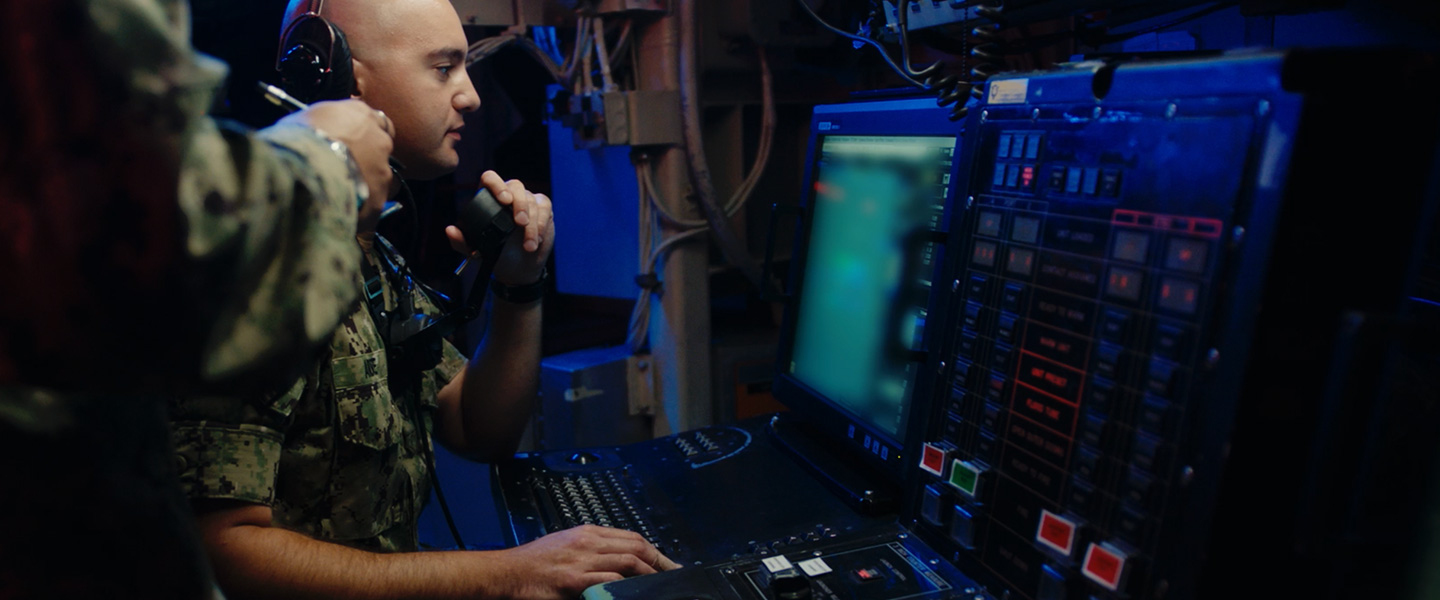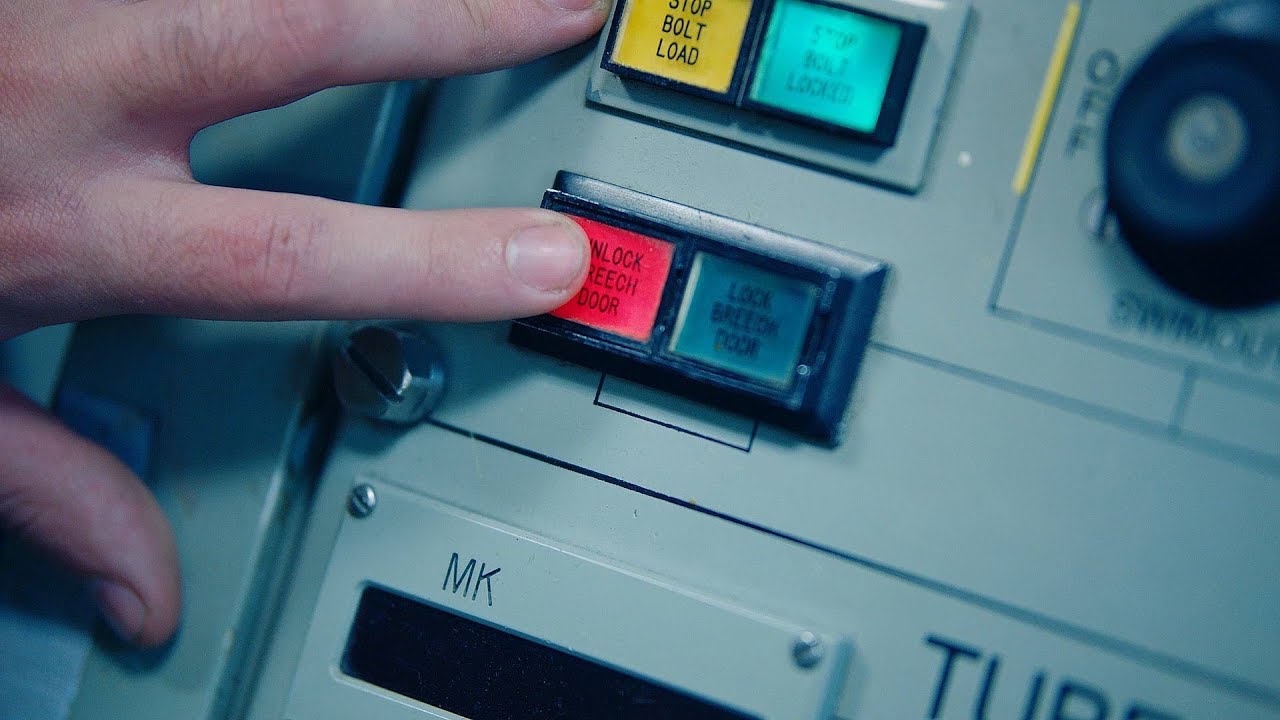What to Expect
More Information
Responsibilities
Fire Control Technicians (FT) specialize in combat systems aboard submarines. They are responsible for the operation and maintenance of advanced electronic equipment associate with guided missile systems and underwater weapons. As an FT, your specific responsibilities may include:
- Maintaining, testing, repairing and calibrating all electronic equipment and systems used for combat
- Operating submarine weapon control and combat control systems
- Assisting in the handling of weapons
- Operating and maintaining nontactical computer systems
- Using and maintaining hand tools and portable power tools
Work Environment
FT duties are usually performed on submarines in the United States and abroad. Your work will be carried out indoors in clean, temperature-controlled environments, though you may also spend time in shop environments while on shore.
Training & Advancement
Upon completion of initial training at Recruit Training Command Great Lakes (known as Boot Camp), you’ll report for specialized training, including:
Basic Enlisted Submarine School (8 weeks) in Groton, CT, for training in basic submarine systems.
Class "A" Technical School and Specialty Pipeline School (18 weeks) in Groton, CT, for training in electronics, mathematics and computer theory.
Following “A” School, FTs may receive additional "C” School training in advanced maintenance and computer skills. Once all training is complete, you may be assigned to a fast attack or ballistic missile submarine, or a shore station in the United States or overseas. Promotion opportunities are regularly available but competitive and based on performance.
Advanced Training
Advanced training as a Fire Control Technician may also be available during later stages of your career. For those with further leadership aspirations and a college degree, Officer roles may be available, providing opportunities to lead and train others.
Post-Service Opportunities
Specialized training received and work experience gained in the course of service can lead to valuable credentialing and occupational opportunities in related fields in the civilian world, such as electrical engineering and telecommunications.
Education Opportunities
Beyond offering access to professional credentials and certifications, Navy technical and operational training as a Fire Control Technician can translate to credit hours toward a bachelor’s or associate degree through the American Council on Education.
You may also continue your education through undergraduate degree opportunities like the Navy College Program and Tuition Assistance and the Post-9/11 GI Bill.
Qualifications & Requirements
A high-school diploma or equivalent is required to become an Enlisted Sailor and a Fire Control Technician. You must also be a U.S. citizen eligible for security clearance.
FT applicants should possess strong arithmetic, writing and speaking skills, and understand computers. You should also be able to perform detailed work, keep accurate records and function well as part of a team. Physically, you should possess good manual dexterity and some physical strength.
To serve in the FT role, you must be willing to serve aboard submarines.
General qualifications may vary depending upon whether you’re currently serving, whether you’ve served before or whether you’ve never served before.
Part-Time Opportunities
There are no part-time jobs as a Navy Reserve Sailor in this role. Go back to Careers to find other jobs that have a Reserve component. You can also find out more about what life is like as a Reserve Sailor in the Navy.

































































































































